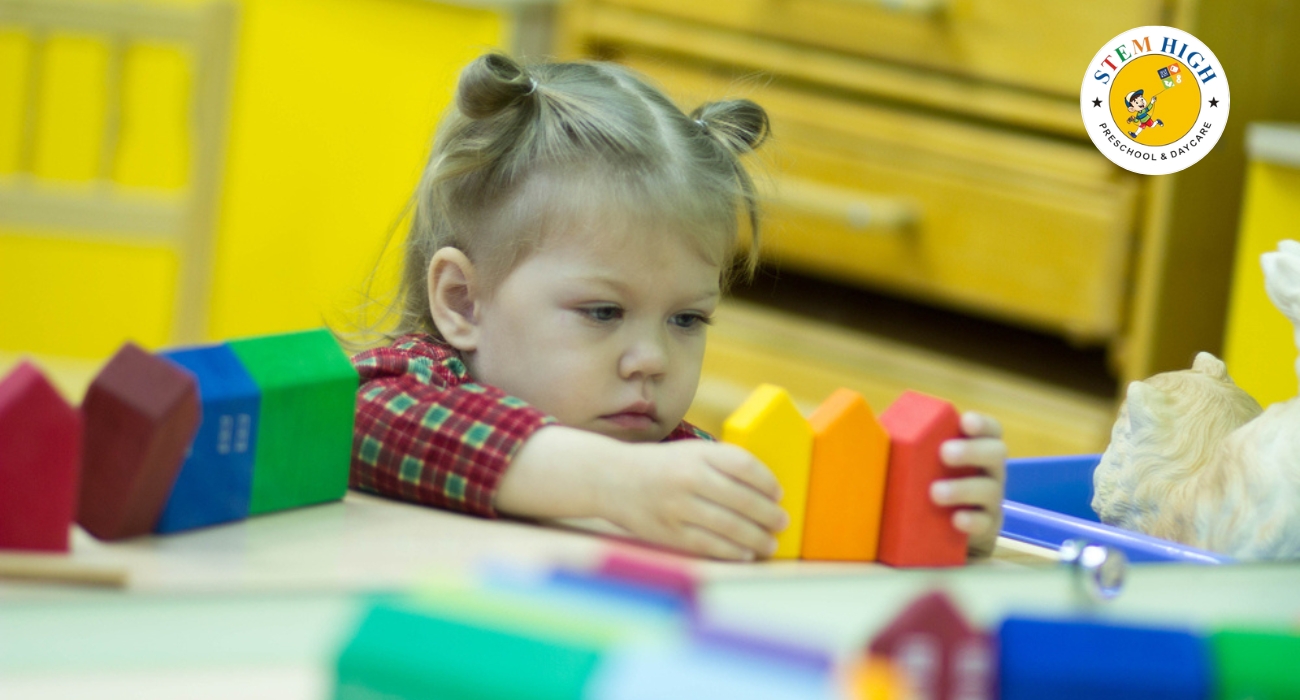STEM HIGH PreSchool
Get In Touch
Monday to Friday: 09:00am – 07:00pm
Sunday: Close
Email:stemhighpreschool@gmail.com
Phone:+91 8050125666
Monday to Friday: 09:00am – 07:00pm
Sunday: Close
Email:stemhighpreschool@gmail.com
Phone:+91 8050125666

Early childhood education (ECE) is a critical phase in a child’s development. It lays the foundation for lifelong learning and well-being. Encompassing the period from birth to eight years old, this stage is characterized by rapid brain development, and the experiences during these years significantly influence a child’s future. In this blog, we will delve into the numerous benefits of early childhood education, exploring its impact on cognitive, social, emotional, and physical development, as well as its long-term effects on academic achievement and overall life success.
One of the most significant benefits of early childhood education is its positive impact on cognitive development. During the early years, children’s brains are highly malleable and capable of absorbing vast amounts of information. Quality early childhood education programs provide stimulating environments that foster cognitive growth through a variety of activities, including:
Early childhood education also plays a vital role in shaping a child’s social and emotional development. These programs provide a structured environment where children learn to interact with peers, build relationships, and develop essential social skills.
Conflict Resolution: Learning to resolve conflicts peacefully is an essential life skill. ECE programs teach children how to navigate disagreements, negotiate, and find mutually acceptable solutions. These skills contribute to healthy relationships and effective communication.
Physical development is another key area where early childhood education offers significant benefits. ECE programs incorporate activities that promote fine and gross motor skills, ensuring that children develop the physical abilities necessary for daily life and academic success.
The benefits of early childhood education extend far beyond the preschool years, significantly impacting long-term academic achievement. Numerous studies have shown that children who participate in high-quality ECE programs are more likely to succeed academically and pursue higher education.
Beyond academic achievement, early childhood education has a profound impact on overall life success. The skills and experiences gained during the early years shape a child’s future in numerous ways.
While early childhood education programs play a crucial role in a child’s development, the involvement of parents and caregivers is equally important. Parents and caregivers are a child’s first teachers and provide the foundation for learning and growth.
Communication with Educators: Open communication between parents and educators is vital for a child’s success. Regular discussions about a child’s progress, strengths, and areas for improvement ensure that both parties work together to support the child’s development.
The benefits of early childhood education are vast and far-reaching, encompassing cognitive, social, emotional, and physical development. High-quality ECE programs provide a strong foundation for lifelong learning, academic achievement, and overall life success. By investing in early childhood education, we are not only supporting the growth and development of individual children but also contributing to the well-being and prosperity of society as a whole. Parents, caregivers, educators, and policymakers all play a critical role in ensuring that every child has access to the transformative power of early childhood education.
Comments are closed